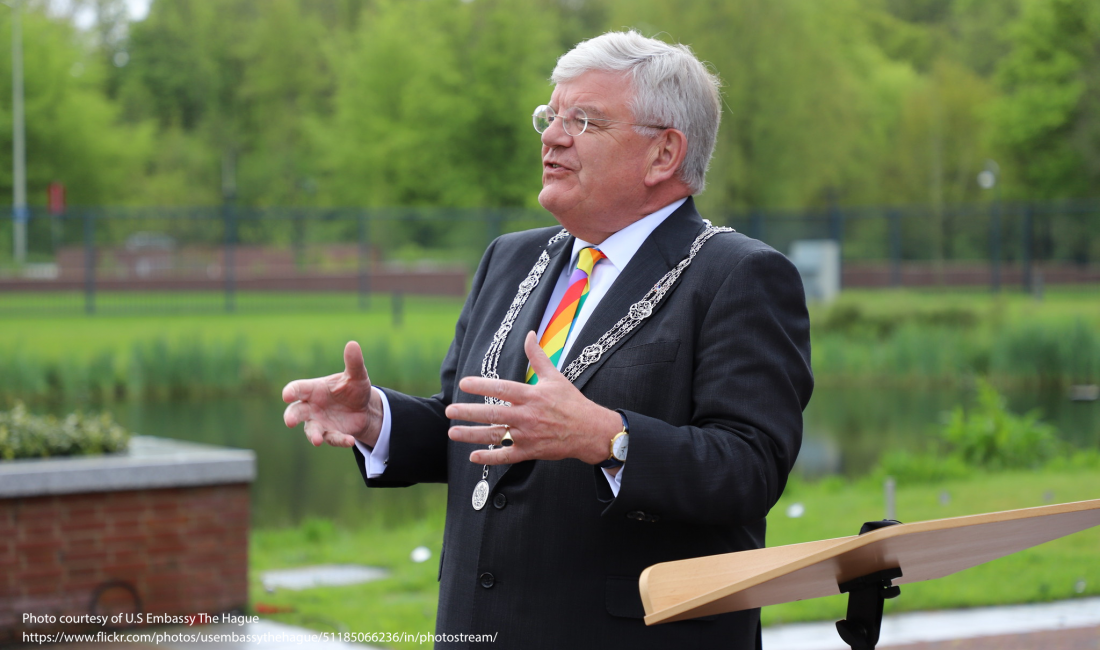No province or city can beat the far-right alone.
This column was co-published with Zócalo Public Square.
I walked up on a mountain in the middle of the sky
Could see every farm and every town
I could see all the people in this whole wide world
That's the union that'll tear the fascists down, down, down
—Woody Guthrie, “Tear the Fascists Down,” 1942
Californians can’t beat the Trump administration all by ourselves. We need allies.
A whole wide world of them.
Let’s face facts. California, despite our size and power, isn’t strong enough to win a protracted legal, political, financial and perhaps violent war with a lawless U.S. government.
While we have the most representatives in Congress, our state is politically weak after the Republicans took the U.S. Senate and defeated a Californian presidential candidate. While we have 171,000 practicing attorneys, MAGA controls the U.S. Supreme Court. And while we boast an unstoppable SoCal band called WAR, the U.S. government has a military with around 1.3 million active-duty personnel, 5,000 nuclear warheads and a $841 billion budget.
In the face of Trump’s explicit threats to immigrants, women, trans people, the health system, the environment, and California itself, it’s reassuring to see Gov. Gavin Newsom respond quickly to the Trump threat. Within days of the election, he called a special legislative session to “Trump-proof” state government, travelled to Washington, D.C. to try to lock California’s environmental waivers in place and reached out to other states for collaboration.
But the California effort against Trump, if it’s to succeed, can’t be led just by Newsom, whose actions are viewed (often unfairly) through the prism of his political ambitions. And it can’t be confined to the U.S., much of which doesn’t seem to care that its next president has promised to be a dictator and “terminate” the Constitution. Instead, we should adopt the wisdom of the great American soldier, Dwight Eisenhower: when you face a problem you can’t solve, make it bigger.
To have a chance, California needs its local officials and locally engaged citizens to connect to their counterparts around the world—to draw from a planet-wide coalition of local governments, provinces and organisations that also face attacks from right-wing national governments.
Such a global defence coalition isn’t a far-out idea. Prominent right-wing leaders around the world have longstanding collaborations.
Donald Trump is a leader of this network. The once-and-soon-future president has hosted Hungarian strongman Victor Orban at Mar-a-Lago, talked regularly with Russian dictator Vladimir Putin, endorsed Brazilian right-winger Jair Bolsonaro’s re-election coup, and maintained a warm friendship with India’s authoritarian Prime Minister Narendra Modi. Meanwhile, Trump’s political allies, most notably Steve Bannon, network with far-right parties in Europe and elsewhere.
The states, cities and communities that suffer under such leaders could benefit from their own coalition.
This goes beyond moral support. Local partners worldwide and California could provide each other mutual aid, offering assistance in the form of money, personnel or expertise when crises arise. This will be especially important if Trump follows through on his to deny Golden State communities emergency funding after natural disasters.
I can imagine foreign cities sending staff to replace local officials who might get swept up in the mass detentions of “enemies” Trump has promised. Friendly foreign municipalities could stand up web operations for our governments if Elon Musk uses his new Trump administration post to roll back California digital infrastructure.
Local governments and organizations also could leverage the courts— local tribunals and world bodies like the International Criminal Court—to apply pressure and at least the threat of accountability to a U.S. administration that commits crimes against its own citizens.
Trump and his family, who are certain to use his time in office to boost their wealth, have business interests in places—from Bali, Indonesia, to Aberdeen, Scotland—where localities could make the president pay a personal legal or financial price. This tactic has worked before; local protests in Vancouver provoked the bankruptcy of, and the removal of Trump’s name from, a hotel there during his first presidential term.
But the greatest benefit from an alliance with local communities and sub-national governments will be ideas. As more nations are consumed by political fights, the actual governance of countries is increasingly left to localities. And many local governments have responded to their national government’s failures with innovations that could be applied here, in areas from democratic process to waste management.
Trump’s ludicrous cabinet is built for politics, not real governance, so California will need all the ideas it can get as it picks up the federal slack. Cities from Rio to Istanbul have much to teach us about protecting ourselves and prospering under autocratic national leaders. Activists in Seoul could explain how to use mass protests to force out a lawless president, as they did with the 2017 Candlelight Revolution. California, with an outdated constitution dating to 1879, could learn from sub-national entities—from Mexico City to South Africa’s Western Cape—about how to write modern charters.
Of course, if California joins forces with governments around the world, the xenophobic Trump administration will accuse us of globalism or treason or worse. We shouldn’t flinch—and should answer that righteous Americans, facing threats from their own national governments, have always sought support overseas. Let’s not forget that escaped slaves found refuge in communities in Canada and Mexico. Or that America’s Founding Fathers won the backing of France and Spain in their revolution against the bullying government in Britain.
The good news is that California local governments won’t have to start a coalition from scratch. The world has more than 100 networks of localities devoted to different causes.
The United Cities and Local Governments, the world’s largest organization of local governments and associations of municipalities, has coalitions dedicated to almost all the issues upon which Trump and California clash, from climate change to the rights of women and sexual minorities. Many of its cities have pledged to protect and include migrants and refugees.
UCLG also just launched “A New Peace Agenda for Future Generations” which focuses on local governments taking action to end conflicts and wars, both between nations and inside them. The kickoff was held Oct 8-10 in The Hague by the Dutch city’s mayor, Jan van Zanen, who just assumed UCLG’s rotating presidency.
Unfortunately, very few U.S. cities, reflecting American exceptional provincialism, have joined UCLG or other international networks. That must change right now.
In fact, before Trump takes office, Newsom, state legislative leaders, mayors and city managers from across California should make a high-profile trip overseas. First, they can visit The Hague to sign onto the “Charter on Municipal Peace” and strategize with Mayor Van Zanen about mutual support between California communities and UCLG members.
From the Netherlands, they should take the security risks of visiting the ruins of Khartoum, the Sudanese city destroyed by an ongoing war fuelled by authoritarian foreign powers, including Egypt, Saudi Arabia, Russia and the United Arab Emirates.
And finally, they should meet in person with local government leaders in Ukraine. The message: Californians are in the same fight as Ukrainians—against violent autocrats who claim the power to rule us, take away our residents and destroy our communities.
To tear these fascists down, the people of every town must come together.




